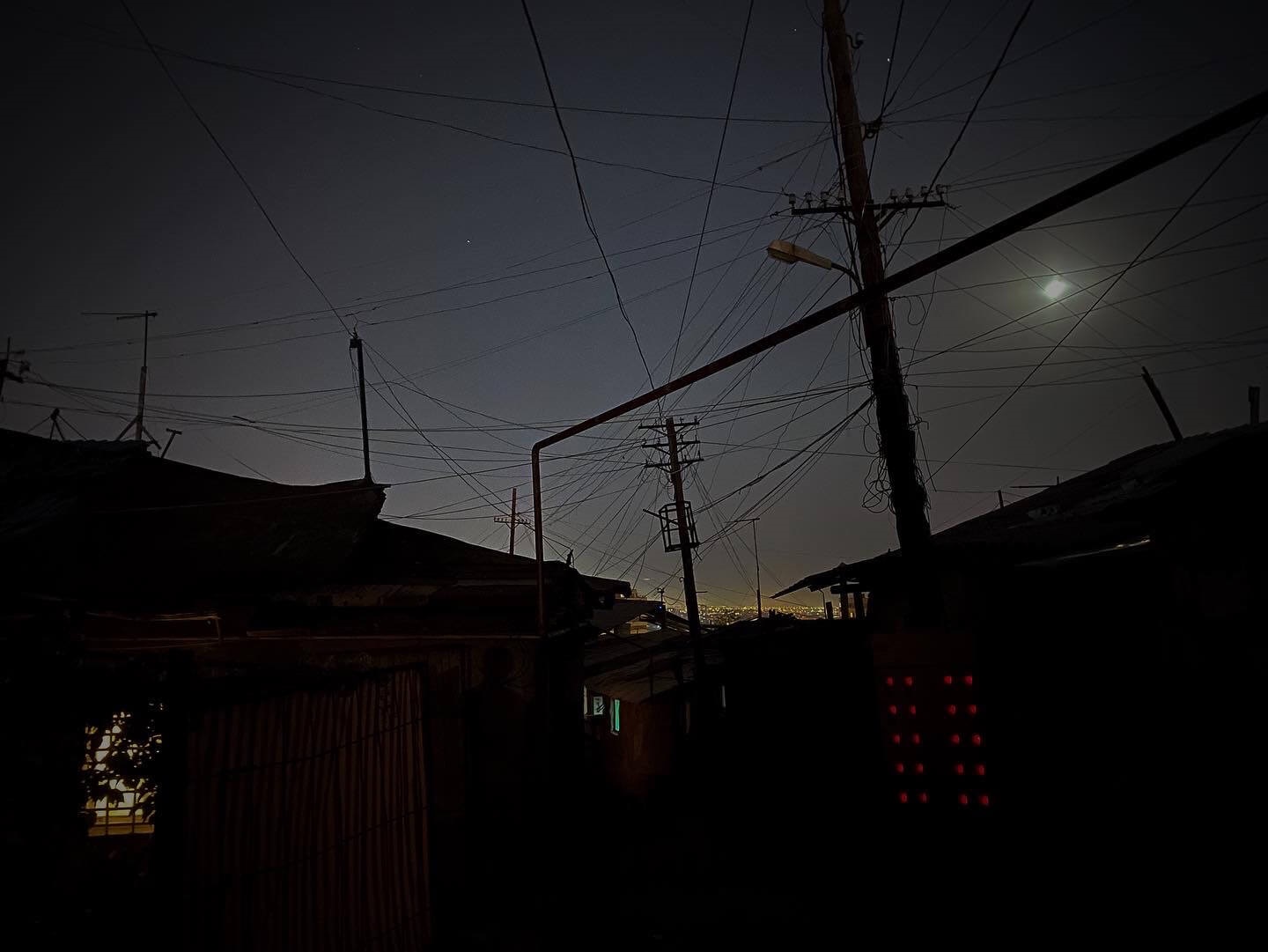Dwelling in darkness
DOI: 10.60650/EMPTINESS-ZX7W-P864
…For I seek emptiness, darkness, and nudity! But the darkness is itself a canvas Upon which live, springing from my eyes by thousands, Beings with understanding looks, who have vanished… 'Obsession' by Charles Baudelaire (transl. William Aggeler, 1954)
This collaboration began in April 2021. During fieldwork for a project on urban shrinkage, we found out that Maria was about to start her doctoral research on ’emptiness’ while Irina was working on her thesis about ‘darkness’. In the year that followed, we exchanged occasional thoughts on darkness, emptiness, and their intricate interconnections.
The idea for the video below started to gain shape after Maria began her enquiries about Armenia, where the ‘Dark Years’ – mut tariner [մութ տարիներ] – were a result of the 1992-95 energy crises in the wake of the country’s independence. Around the same time, Irina engaged in ‘darkness correspondence’ with her Lebanese friend Ghina which touched upon Beirut’s ongoing infrastructural crises. Combining our research interests, we applied for the 2022 Night Studies conference in Lisbon. Working on the presentation, Irina proposed we visualise our preliminary thoughts and findings in the form of a video essay.
‘Dwelling in darkness: researching marginalities of an emptying nocturnal city’ is an experimental ‘comparative gesture’. We do not attempt to make a straightforward juxtaposition based on similar methodologies, nor on spatial or temporal contexts. Rather, we strived to portray a polyphony of narratives about darkness, emptiness, and infrastructural failure – in Irina’s words, as embodied conditions. Yet, while filming our sections and analysing the data, we found numerous entanglements within Yerevan and Beirut through our reading of memoirs, conducting of face-to-face interviews, and being in correspondence with residents in both cities.
We are grateful to Varya Volovik for the technical support.
This is an Open Access article, distributed under the terms of the CC-BY (Creative Commons Attribution 4.0 International) licence, which permits unrestricted re-use, distribution, and reproduction in any medium, provided the original work is properly cited.
